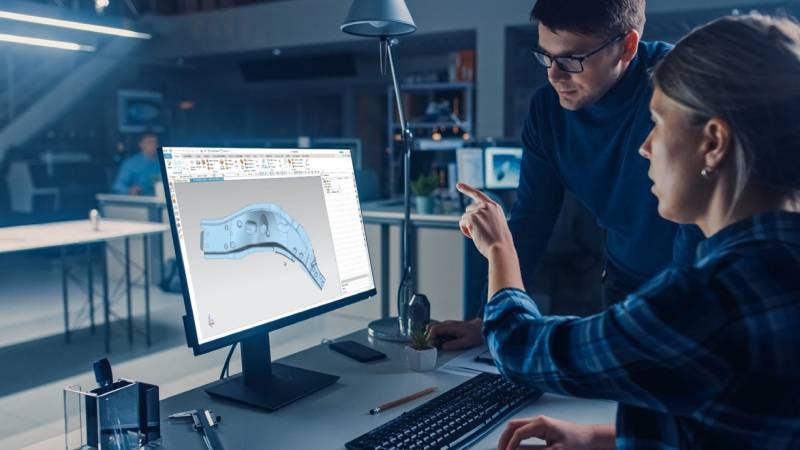The automotive industry is changing faster than ever. In the new age of automation and electrification, you'll find sensors, chips, and electronics at the heart of every vehicle. Vehicle complexity has skyrocketed while increasing concern over climate change, and shifting regulations means that it is more necessary than ever to respond quickly and efficiently to market changes. Experts Greg Roth, Solution Director at Siemens Digital Industries Software, and Tom Spangler, Marketing Manager at Siemens Digital Industries Software, will guide you through the digital tools needed to stay ahead of the competition in this on-demand webinar.
Utilize a comprehensive digital twin for an Accelerated Product Development approach
To stay ahead of challenging market trends, automotive manufacturers need a fully integrated, end-to-end design and engineering platform and digital thread backbone that seamlessly shares the most up-to-date information with everyone in the product ecosystem, guaranteeing complete traceability. Siemens Accelerated Product Development solution enables designers and engineers to get designs right the first time with a continuous virtual validation and verification system. Automated artificial intelligence helps to frontload to avoid wasting critical resources on building designs that fail, requiring costly and time-consuming rework by implementing a comprehensive digital twin. This means designers and engineers can explore more innovative ideas to boost product performance and quality.
Develop new innovative product designs by implementing generative design
New product development challenges require new next-generation design solutions. A revolution in changing design processes, simulation productivity, and additive manufacturing is generative design— engineering innovation with automated intelligent exploration. It allows for a combination of traditional technologies, such as feature modeling, and combines them with new technologies like design optimization and convergent modeling. Siemens Accelerated Product Development solution enables companies to leverage the power of new emerging manufacturing approaches to quickly identify and assess numerous innovative designs and select the concepts that match product requirement targets, such as performance, mass, cost, and manufacturing.
Reduce time, cost, and errors in the product design process
Innovation is picking up as the automotive industry shifts gears and moves toward the future. This, coupled with intensified competition from the tech giants and highly specialized start-ups, means that traditional design and engineering practices no longer cut it. Siloed data and disjointed workflows inhibit highly complex product development and slow innovation. Teams are left unsure of the most up-to-date requirements with multiple data sources, creating costly mistakes that cause delays and over-budget projects. With Siemens Accelerated Product Development solution, you can boost traceability and auditability and thoroughly assess designs across mechanical, electrical, and software domains to reduce time, cost, and errors in product development.
Watch this on-demand webinar to discover how Siemens Accelerated Product Development solution can help you deploy the digital tools needed to stay ahead of the competition.
Meet the speakers

Thomas Spangler
NX Senior Marketing Manager
Tom Spangler has more than 25 years of experience in CAD and PLM, including 15 years in design, IT, and data management in the automotive industry at both the OEM and supplier levels. Tom completed his master’s degree in business administration in 2006 and joined Siemens in 2008 as a marketing manager. In that role he has created and contributed to multiple product launches, marketing campaigns, and other initiatives.

Greg Roth
Director of Automotive and Transportation Solutions in the Industries Group
Previously, Mr. Roth held positions at Ford Motor Company, Eaton Corporation and Amcor Packaging. More recently, he was Chief Engineer for the CAE and NVH departments at ZF-TRW Automotive North America Braking Systems in Livonia, Michigan. In his current role, he champions CAD, CAE & PLM technologies and processes for companies at a global enterprise level achieving substantial reductions in product development costs and time while improving overall quality. Mr. Roth holds an M.S. in Mechanical Engineering from the University of Michigan, an M.S. in Electronics and Computer Controls Engineering from Wayne State University and a B.S. in Mechanical Engineering from Michigan State University.
